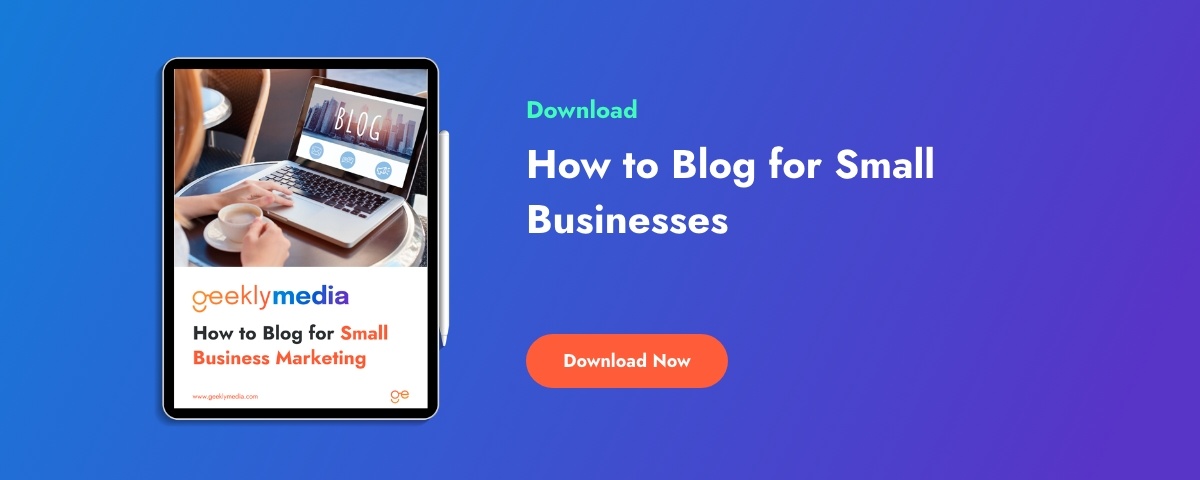
How to Blog for Better Inbound Marketing Success
Listen to the article
How to Blog for Better Inbound Marketing Success
If you're not generating the organic leads you need for success, it's time to look at your content (or lack thereof).
Having a blog for your business website is essential for success in inbound marketing!
Whether you need real estate blog content, you're running a property management blog, or you have any other type of business blog, it can be a powerful tool for attracting and engaging your target audience.
How can you get started and blog like a pro? Today we'll explain why you need a blog for your business website and provide a step-by-step guide on how to blog effectively for better inbound marketing success.
Why You Need a Blog for Your Business Website
A blog is a valuable asset for a real estate business website for several reasons. First and foremost, it helps you establish your authority and expertise in your industry. By regularly publishing high-quality and informative content, you can position yourself as a trusted source of information and build credibility among your target audience.
Additionally, a blog allows you to engage with your audience on a more personal level. When promoting your content on social platforms, you provide a way for your audience to engage in two-way communication. Visitors can leave comments, ask questions, and share their opinions, creating a sense of community and ultimately seeing you as an expert.
Moreover, a blog is a powerful tool for driving organic traffic to your website. Search engines love fresh and relevant content, and regularly updating your blog with new posts gives you more opportunities to rank higher in search engine results. This, in turn, increases your visibility and drives more qualified traffic to your website.
In short, without an SEO-driven blog and regularly posting content to it, you are losing leads.
 How to Blog for Success: 6 Steps
How to Blog for Success: 6 Steps
Now that you understand the importance of having a blog let's dive into the step-by-step process of how to blog effectively for better inbound marketing success.
1. Start a Blog
If you haven't already, set up a blog on your business website. Choose a user-friendly platform like HubSpot that offers customization options and integrates seamlessly with your website.
With a place to place and promote content, you're ready to get into actual blogs!
2. Determine Your Topics
What will you write about? As interesting as your life might be, chances are your audience of real estate investors, buyers, or sellers cares more about learning from your expertise as a property manager or real estate professional.
Before you start writing, identify topics that are relevant to your target audience. Conduct keyword research to discover what your audience is searching for and tailor your content accordingly. For example, if you have a real estate blog, you could write about "real estate investment tips" or "a home buying guide."
3. Write the Blog
Craft your blog post in a clear and concise manner. Use active voice to make your writing more engaging and avoid jargon or technical terms your audience may not understand. Additionally, break up the content into short paragraphs (2-3 sentences is ideal), and use headers to make it scannable and easy to read.
As you can see, we write our blogs using short paragraphs and plenty of headers! Proper formatting helps readability (and Google prefers it).
4. Optimize It
Optimize your blog post for search engines by including relevant keywords in the title, headings, and throughout the content. In addition, incorporate internal and external links to provide additional context and value to your readers.
Add meta tags and descriptions to improve the visibility of your blog post in search engine results. Good SEO (search engine optimization) is crucial for driving the organic traffic you need to your site content.
5. Add Images and Alt Text
A page full of text is boring (and Google doesn't love that). Make sure your blog has relevant images. This also enhances readability and visual appeal.
Images should be high-quality but not large files to avoid slow page load speeds. Along with engaging images, add alt text to each image. This is another Google SEO ranking factor!
6. Publish It!
Once you have proofread your blog post and ensured it meets your quality standards and SEO elements, hit the publish button.
Then, promote your blog post on your social media channels, email newsletters, and any other marketing platforms you utilize to increase its visibility and reach.
Should You Use Tools Like ChatGPT?
What is ChatGPT? It's an advanced language model developed by OpenAI that can assist you in various aspects of content creation.
The app can help generate ideas, refine your writing, and provide valuable insights. However, it's important to note that while ChatGPT is a powerful tool, it shouldn't replace your creativity and expertise.
Using ChatGPT can be beneficial, especially when facing writer's block or needing inspiration for real estate blog ideas or property management topics. It can provide you with a fresh perspective and suggest new angles to explore.
However, while ChatGPT is a valuable tool, it's essential to use it judiciously and not solely rely on it for property management or real estate blogging. Remember that your blog should reflect your unique voice, expertise, and insights. It's crucial to maintain authenticity and provide value to your audience based on your own knowledge and experience.
 AI-generated content should be reviewed and edited by a human before publishing. This ensures accuracy, coherence, and consistency with your brand messaging. Ultimately, striking a balance between leveraging AI tools like ChatGPT and showcasing your own expertise will result in the most effective and engaging blog content.
AI-generated content should be reviewed and edited by a human before publishing. This ensures accuracy, coherence, and consistency with your brand messaging. Ultimately, striking a balance between leveraging AI tools like ChatGPT and showcasing your own expertise will result in the most effective and engaging blog content.
Generate More Traffic From Your Property Management Blog With Content Marketing Experts
Having a blog for your business website is crucial for inbound marketing success! By consistently creating valuable and engaging content, you can establish your authority, drive organic traffic, and foster stronger connections with your audience.
If you're ready to build a successful content marketing strategy to generate more traffic and leads, Geekly Media can help. Our team of experts specializes in creating compelling and optimized blog content that resonates with your target audience. From brainstorming ideas to crafting engaging articles, we have the expertise to elevate your inbound marketing efforts.
If you're not quite ready to Speak to a Geek, get more insights into how to blog for successful content marketing with our free resource, "How to Blog for Small Businesses."




-1.png)